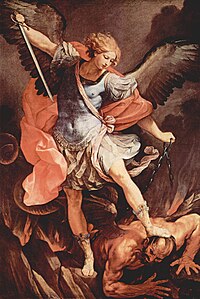In the 2006 comedy Talladega
Nights,Will Farrel, playing race
car driver Ricky Bobby, begins his family table grace with, “Dear
Lord Baby Jesus.” When his wife questions why he's praying to a
baby, Ricky replies that he prefers the Baby Jesus to the Grown Up
Jesus. It's meant to be silly, but, in a way, I can see the
character's point. There's something so beautiful about the story of
Baby Jesus, and the story has a certain power over our imaginations.
When we think of an innocent infant, part of us goes soft, warm, and
gooey inside.
Some
time ago I published a post with the title “Is the Church
Irrelevant?” I re-read it recently, and I realized I'd left out the
most important argument for refuting any doubt about the importance
of the church. Yes, I reminded the reader that public worship and
fellowship are necessary forms of human reconnection in this
electronic media age. I extolled the virtues of our tradition's
ancient wisdom, and I made the point that collectively we can
accomplish so much more good than we can do on our own. These are all
practical points, but they miss the main point which distinguishes
our Christian faith.
I
forgot to mention Jesus.
Now,
far be it for me to put down the belief systems of other
faiths—especially since I am so woefully ignorant about them.
Nevertheless, I can't see myself being moved by a victorious and
virtuous Mohammed, a wise Confucius, or a transcendental and
spiritual Buddha. But I know what I feel when I think of the infant
Jesus in the manger—a helpless child, homeless and in poverty. I've
never had a baby of my own ( I've never even diapered one!), but the
older I get the dearer babies seem to me . When I hold a child over
the font for baptism, I'm just amazed by the power an infant has to
calm me and bring a smile to my face.
Our
Christmas story never ceases to have power over us because we all
need to feel that sense of joy, wonder, fear, and hope
which is the mystical strength of the infant. As much as we need to
be loved in this world, so we need to give
love. There's just something about the child's helplessness which
draws out or better selves. And this is the power of God at work.
And
yet there's even more: This particular little baby has so much hold
over us because we know how his life will end—suspended on the pain
of the cross. He will lose everything: friends, dignity, peace, and
life itself because he is the one sent to love us. He will enter
completely into our loss, our emotional hurt, our despair, our guilt.
Even as we smile at the cooing infant, our hearts are touched by the
love which will suffer for the brokenness of this messy planet.
The
Christmas story is a gift which keeps on giving, because, as we, age,
we learn to treasure sweetness and innocence and to feel empathy for
suffering. And every time we see this tiny newborn in the filthy
cattle trough, we have the opportunity to enlarge our hearts.
There
are many things to love about Christmas. There are family reunions,
lights, carols, gift-giving, and parties. But at the end of it all
there is nothing as transformative or as humanizing as the love of
God found in Jesus.
May
God's love enlighten your hearts this season in peace, joy, and the
wonder of the Christ Child.
A
blessed Christmas to you all, and my deepest thanks for your support.
* * *
Hey! Why not give the Christmas gift which keeps giving the whole year 'round? A UNIFIED Christian Church. Sound like a good idea? If you're Lutheran or Roman Catholic, please support my petition for full altar fellowship between our denominations. Let Pope Francis know we're ready to love our neighbors as ourselves in spite of our differences. Just click here.








